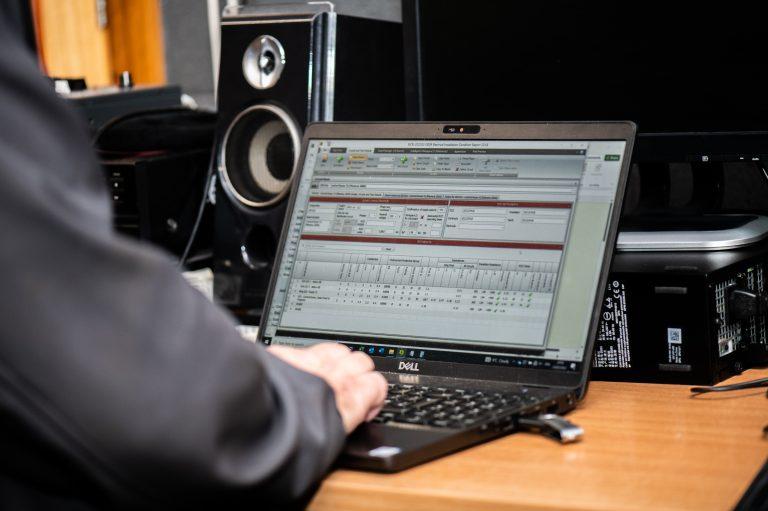Unfortunately, there isn’t a single answer, as the IET Wiring Regulations stipulate different frequencies of testing depending on the type of installation, the nature of usage of the building and the environment that the electrical installation is exposed to (ie wet or dusty). In this article we aim to provide you with some guidelines to help you to identify your testing interval.
Do all Industrial Businesses require fixed wire testing?
Fixed wire testing involves specialist engineers testing the fixed installations in your workplace to ensure they are safe to use and offer adequate protection to workplace users, employees or visitors. After a successful assessment (or once any faults have been remedied) the testing contractor will issue you with an EICR (Electrical Installation Condition Report).
Maintaining an up to date EICR ensures your business remains compliant with the Health & Safety at Work Act (1974) and the Electricity at Work Regulations (1989) – which is something ALL businesses need to do.
But how often do you need to test your installation for an EICR?
Unfortunately, there isn’t a single answer, as the IET Wiring Regulations stipulate different frequencies of testing depending on the type of installation, the nature of usage of the building and the environment that the electrical installation is exposed to (ie wet or dusty).
The maximum interval for any building type is 5 years, but within the Industrial Sector there are few factors to consider which may reduce your testing interval to 3 years or even 1 year.
Is this test the same as a Routine Check or Visual Inspection?
No. In addition to the fixed wire testing interval, you have a responsibility to conduct a routine check or visual inspection at the stated interval. You do not need specialist contractors for this as it doesn’t require the use of specialist equipment but you should keep a record of your own inspection, what you have inspected and any observations..
Heavy Plant Machinery – 3 years Formal Periodic Inspection + 1 year Routine Check/ Visual inspection
If your business uses heavy plant machinery, you will require Fixed Wire Testing every 3 years. Heavy plant draws a significant current which places additional demands on your wiring infrastructure and the chances of the machinery impacting the wiring infrastructure and equipment is increased. Heavy plant environments are often high in dust particulates too, which can penetrate electrical installations and cause overheating and a higher risk of fire.
Laboratories – 5 years Formal Periodic Inspection + 1 year Routine Check/ Visual inspection
Laboratories and other clean-room environments are considered relatively low-risk, as they are generally well-protected from exposure to external environmental factors, such as moisture or intense heat and are rarely high in dust or other airborne particles. So, laboratories typically require testing only every 5 years, the same as commercial offices.
High-Dust – 3 years Formal Periodic Inspection + 1 year Routine Check/ Visual inspection
In manufacturing centres, if your process requires a lot of sanding, fibre-glass work, metal cutting or similar, then the environment is highly likely to be dusty. Dust can build up inside electrical installations and cause over heating of components and equipment. In addition to a 3 year testing requirement, your facilities team should establish a regular cleaning process to prevent dust particle build up and minimise risk.
High water exposure – 1 years Formal Periodic Inspection + 4 monthly Routine Check/ Visual inspection
If your industry involves water in the electrical environment, such as fish-farming or pumping stations, then this is the highest risk category and you will require an EICR to be produced on an annual basis.
Do you need an EICR / Fixed Wire Inspection? Contact Intersafe




